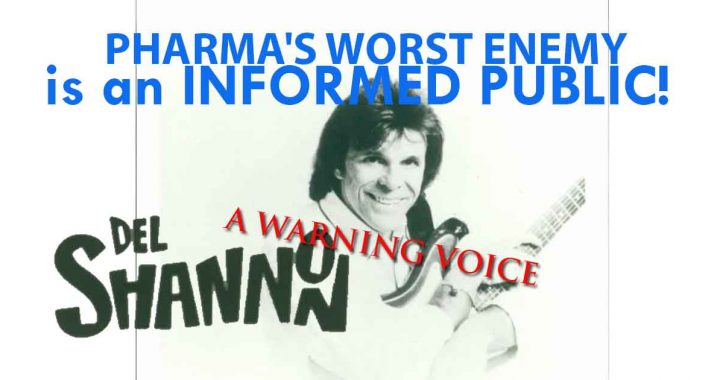Paragraphs 6 through 9 read: “Munn lost his license to practice psychiatry in Montana in 2003, after having an ongoing sexual relationship with one of his patients. His marriage dissolved around the same time. Already being treated for depression, Munn’s condition was rediagnosed, and with the help of counseling and medicine, he rebuilt his life into one where he’s succeeding while living with a mental illness.”
“Anti-depressants didn’t help the manic side of Munn’s bipolar disorder. At times his thoughts raced. He didn’t sleep. He had grandiose ideas like how to fix the entire mental health system in the state of Montana.”
“And he believed he could do anything he wanted.”
“’I felt rules didn’t apply to me. That would be grandiosity,’ he said. ‘But they do. And that’s accepting that you have a mental illness’.”
http://www.helenair.com/articles/2009/08/02/top/55lo_090802_mh2.txt
Psychiatrist brings himself back from the brink of suicide
By JOHN HARRINGTON – Independent Record – 08/02/09
Eliza Wiley Independent Record – Nathan Munn has fought back from some very low places. Rather than ending his life, the psychiatrist chose to seek treatment for his bipolar disorder and began a new career teaching psychology courses and developing a mental health direct care program at University of Montana-Helena.
In 2003, with his career and home in very public shambles, Nathan Munn nearly committed suicide.
But rather than end his life, the psychiatrist chose not to pull the trigger one fateful night. He subsequently got treatment, including psychotherapy and medications, for his bipolar mood disorder.
Now, Munn is an instructor at the University of Montana-Helena, teaching psychology courses and developing a mental health direct care program that trains students how to be direct caregivers, counselors and other types of mental health professionals.
“I’m really thankful for my job at UM-Helena,” said Munn, 49, in a candid interview last week. “And I hope that my story can be of some inspiration along with my teaching. It’s my intention that I’m still helping in the community, but now with education as opposed to direct providing of psychiatric care.”
Munn admits somewhat nervously that his past is still “hard to talk about.” He chooses his words carefully, often pausing between sentences. He’s told his humbling story before, and maybe it’s getting a little easier but not much. Remorse hangs deep in his eyes.
Munn lost his license to practice psychiatry in Montana in 2003, after having an ongoing sexual relationship with one of his patients. His marriage dissolved around the same time. Already being treated for depression, Munn’s condition was rediagnosed, and with the help of counseling and medicine, he rebuilt his life into one where he’s succeeding while living with a mental illness.
Anti-depressants didn’t help the manic side of Munn’s bipolar disorder. At times his thoughts raced. He didn’t sleep. He had grandiose ideas like how to fix the entire mental health system in the state of Montana.
And he believed he could do anything he wanted.
“I felt rules didn’t apply to me. That would be grandiosity,” he said. “But they do. And that’s accepting that you have a mental illness.”
Mental illnesses are by no means limited to those on the fringes of society. Millions of Americans of all walks of life blue collar and white, laborers and professionals live daily with schizophrenia, depression, bipolar mood disorder and other diagnosable and treatable conditions.
Mike Larson of Dillon is director of the State Bar of Montana’s Lawyer Assistance Program, which was created in 2006 after several attorneys committed suicide in Missoula.
“Lawyers, from the first call in the morning to the last e-mail at night, are busy dealing with everyone else’s problems,” Larson said. “So what do they do when their own problems kick in?”
Larson said that from a population of 2,800 members of the bar in Montana, he takes calls from eight to 10 new clients a month, around a third of which are related to mental illness, with another third dealing with chemical dependency. He said many lawyers are reticent to call the program, either out of fear that others will learn of their treatment and their careers will suffer, or from simple denial.
“There are a lot of stereotypes out there about what mental illness is, and there’s that whole component of not wanting to be under the stigma of mental illness,” Larson said.
For Munn, day-to-day life means a regimen of a mood-stabilizing drug and an anti-depressant, acknowledgement of and taking responsibility for the mistakes he made and a resolve to move forward knowing the illness will likely be with him for the rest of his life.
“It’s not like there’s one day that you no longer have a mental illness,” he said. “On appropriate treatment, it can be in remission. And you stay on your meds and you do the psychological work necessary, and you move forward.
“I hate to say it because it sounds like it’s bragging, but it takes courage. You have to face this, you face what you did, you face having a mental illness, and you accept other aspects of your life.”
Munn doesn’t hide from his condition, and hopes that sharing his story will comfort others who find themselves in similar positions.
“One of the main things I want to say is when you have a mental illness, you have to acknowledge that that’s there, and that you have it,” he said. “I have a bipolar disorder, I am not bipolar. It is something that I have, it is not something that I am. A lot of people say, ‘I am bipolar.’ Well, what does that mean? You don’t say, ‘I am congestive heart failure. I am sinusitis.’ It’s not who you are, it’s what you have.”
Just as there are ways to characterize people living with mental illness, there are productive ways to discuss the illnesses themselves, Munn said.
“(People) talked about the dark recesses of the mind. That’s not the way to talk about it,” he said. “The term ‘dark recess’ has such a negative connotation, Dr. Jekyll and Mr. Hyde, that’s not it. They’re not dark recesses. It’s neuropathology. It’s limbic system disregulation. And it’s the cognitions, the thinking that goes along with it.
“That’s a tough thing for people to get, but I think it’s crucial for people to get that as they’re recovering from a mental illness, that our brains and our minds are the same thing. So when I have negative cognitions, when I’m thinking that people would be better off without me, that’s the psychological part.
“And that’s a key point for people, is that what you’re thinking psychologically and what your brain is doing physically, we don’t know how it’s the same function, but it is the same function. The subjective psychology that you’re feeling as a person with a mental illness, is the psychological aspect of the biological process, and yes, it is a real illness. The idea that a psychological illness is somehow not real is just absurd. That’s crazy.”
Many mental illnesses can be directly traced to chemical imbalances or other physical abnormalities in the brain. But having a mental illness can’t by itself be an excuse for any actions, good bad or otherwise.
“You don’t want to use it as an excuse to justify behaviors. You have to take accountability. Personal accountability is necessary for recovery, it just is,” he said. “It takes humility, it takes a lot of work, it takes compliance.
“I made huge mistakes. My choices were horrible. Despicable, really, is the term to use. I hurt a lot of people. I hurt patients that I had, the person herself and her family, and of course my family. I feel sorry and apologetic about that every day. Especially for my children, I feel horrible and always will.
“One of the points I would like to make is, yes, I have this bipolar disorder. To deny I do would be to deny I have a mental illness. But I also completely accept responsibility and accountability for my actions. And that’s a very important point: recovery requires personal accountability. Yes, I have a major mental illness, and yes, I am responsible for my actions. Those aren’t mutually exclusive.”
Treating a mental illness isn’t a guarantee of happiness. Life still presents challenges, and treatment gives those suffering from mental illness a better chance at facing those challenges head-on and coming out ahead.
“Life has struggles, with or without a mental illness,” Munn said. “Having your mental illness treated doesn’t mean your life is wonderful. You’re still going to have the struggles that everyone has. But you’ll also have wonderful things. I’m a grandfather. And that’s wonderful. If I had killed myself, I wouldn’t have known this joy of having a granddaughter.
“You have to accept mental health care of various types, and you need to know that it’s worth it, that treatments are available, the science is there, people do recover, illnesses do go into remission. Of all chronic illnesses to have, having a mental illness is not bad. Treatments are available, and you can live a long, good life having your mental illness treated.”
Larson of the Lawyer Assistance Program acknowledged that people need to want to treat their illnesses.
“There are a lot of people out there that still need the help that haven’t come forward or recognized they need the help,” Larson said. “Not only are they in denial that they have a problem, they’re in denial that everyone knows they have a problem.”
And even if the disease goes into remission or becomes manageable, a person must be diligent, even when things are going well.
“It’s not something you mess around with. And that’s OK,” Munn said. “Mental illnesses are chronic illnesses. People have the idea that, ‘Oh no, I’m going to be on medications for life.’ Well yeah, you are. And that’s all right, you have a chronic illness. There are a lot of chronic illnesses, not just psychiatric ones. And people who have those, like type 1 diabetes, will be on insulin. It’s accepted. So it’s a chronic illness, you accept that.”
And the more acceptance there is, across a broader swath of Montana at large, the easier it will be for people to summon the strength to get the help they need, to confront the illness, and to assume the places so many of them deserve as productive members of society.
To view the complete series on mental health care services in Montana, click here.
John Harrington: 447-4080 or john.harrington@helenair.com.




